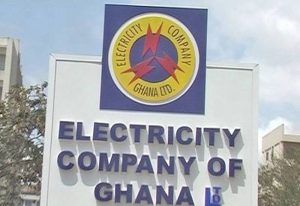S&P Global downgraded Ghana’s long-term local currency bonds to “selective default” and cut the country’s foreign currency debt to “CC” from “CCC-plus,” with default a “virtual certainty,” the ratings agency said in a Tuesday statement.
S&P said Ghana’s proposed local debt swap is a “distressed exchange offer,” earning those bonds the “selective default” rating, while the foreign currency bonds downgrade responds to the government’s announced plans to restructure that debt.
Ghana’s parliament on Tuesday narrowly approved the proposed 2023 budget, overcoming resistance from opposition lawmakers over the inclusion of the debt exchange and a higher value-added tax.
The downgrade by S&P Global follows the recent downgrade by Moody’s Investors Service.
Moody’s on November 30, 2022, downgraded Ghana’s long-term issuer ratings to Ca from Caa2 and changed the outlook to stable.
The Ca rating reflects Moody’s expectation that private creditors will likely incur substantial losses in the restructuring of both local and foreign currencies debts planned by the government as part of its 2023 budget proposed to Parliament on 24 November 2022. Given Ghana’s high government debt burden and the debt structure, it is likely there will be substantial losses on both categories of debt in order for the government to meaningfully improve debt sustainability.
The stable outlook balances Moody’s assumption that the debt restructuring will happen in coordination with creditors and under the umbrella of a funding program with the IMF against the potential for a less orderly form of default that could result in higher losses for private-sector creditors.
Moody’s has also downgraded Ghana’s senior unsecured debt ratings to Ca from Caa2 and the senior unsecured MTN programme ratings to (P)Ca from (P)Caa2, along with downgrading to Caa3 from Caa1 the rating of Ghana’s bond enhanced by a partial guarantee from the International Development Association (IDA, Aaa stable), concluding the concurrent reviews for downgrade. The latter reflects a blended expected loss consistent with a one-notch uplift on the issuer rating.
Finally, Moody’s has lowered Ghana’s local currency (LC) and foreign currency (FC) country ceilings to respectively Caa1 and Caa2, from B2 and B3, mirroring the downgrade of the sovereign ratings by two notches. Non-diversifiable risks are captured in a LC ceiling three notches above the sovereign rating, taking into account relatively predictable institutions and government actions, limited domestic political risk, and low geopolitical risk; balanced against a large government footprint in the economy and the financial system and external imbalances. The FC country ceiling one notch below the LC country ceiling reflects constraints on capital account openness and very weak policy effectiveness against authorities’ history of providing access to foreign exchange.
Ashantibiz




